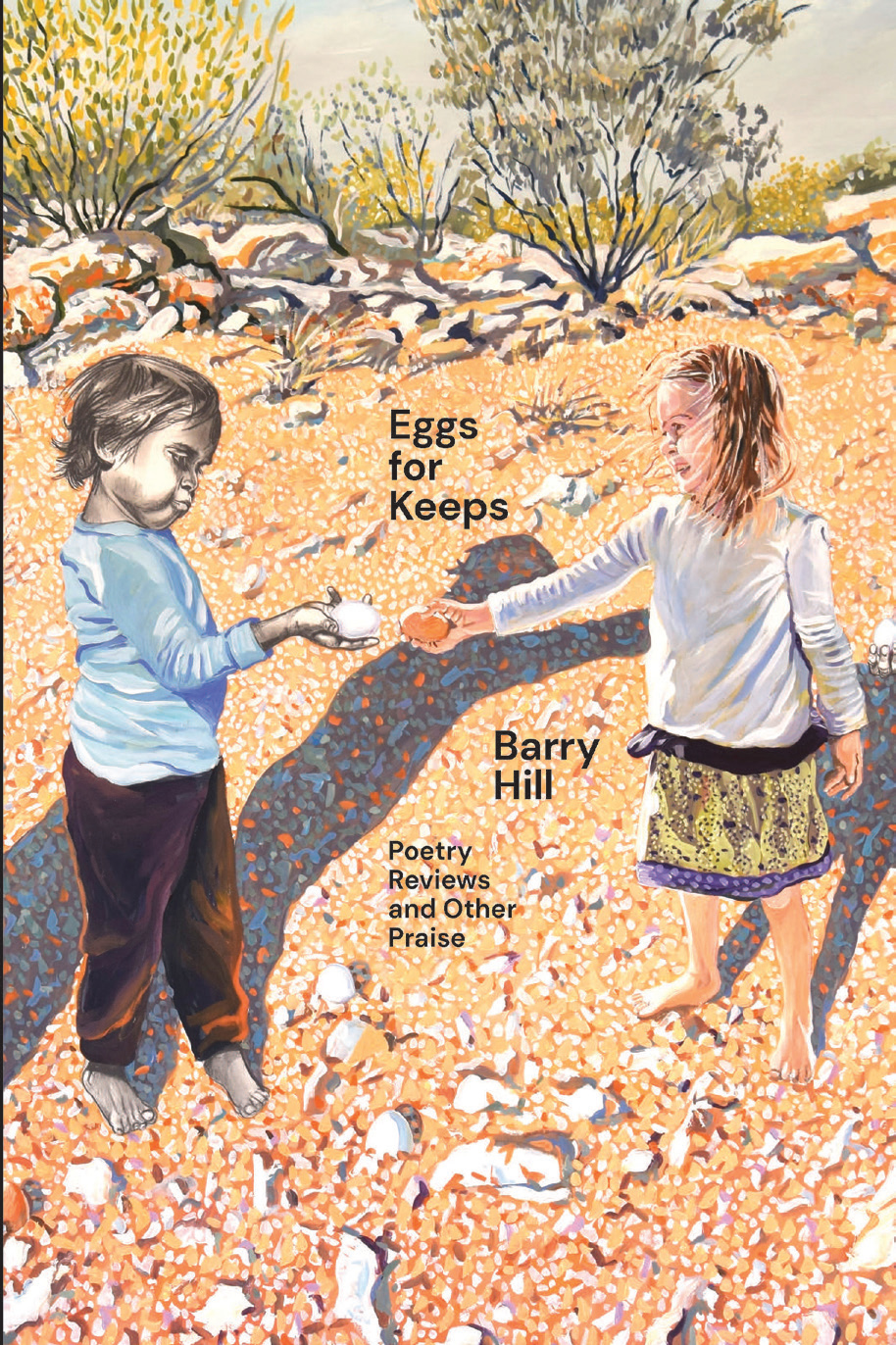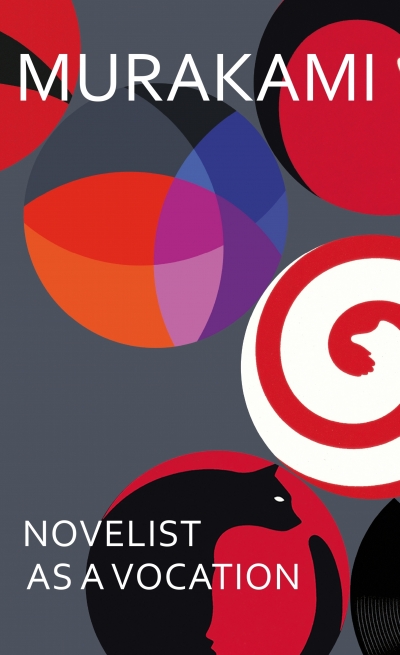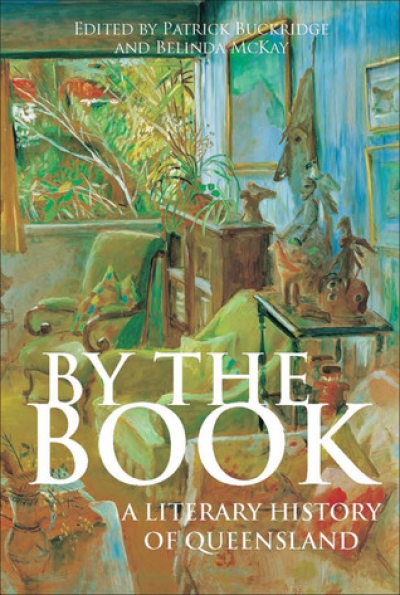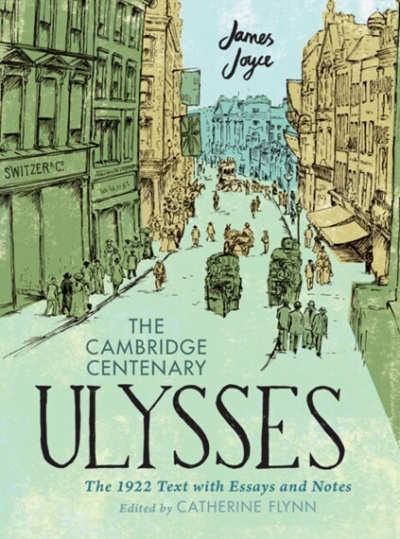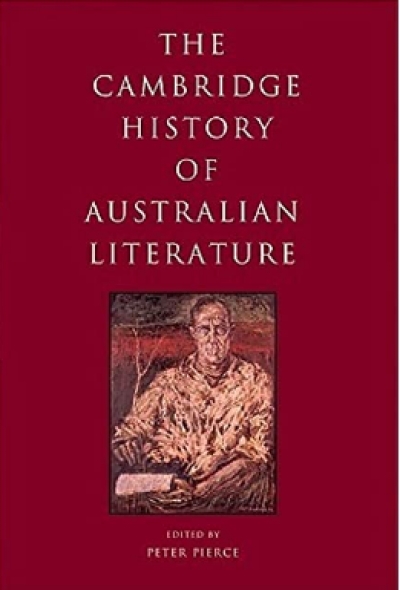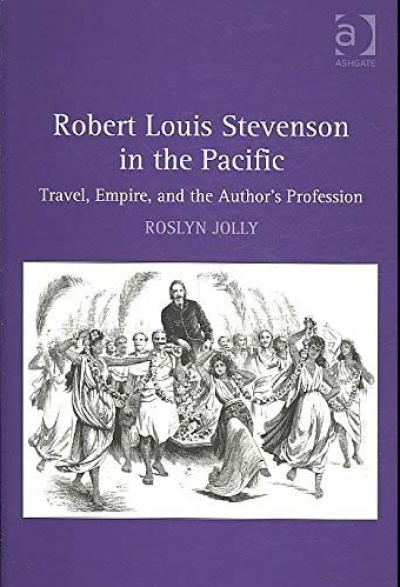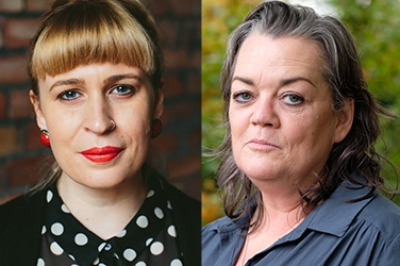Literary Studies
Eggs for Keeps: Poetry reviews and other praise by Barry Hill
'The point is to deal with the stuff itself,’ wrote John Berryman. He was referring to Randall Jarrell, paragon of mid-century poet-critics – one who did, indeed, deal with the stuff itself, writing of poetry with the practical competence of a mechanic who knew his way around an engine, having built a few himself – but he could just as easily be speaking of Barry Hill.
... (read more)Novelist as a Vocation by Haruki Murakami, translated by Philip Gabriel and Ted Goossen
In Novelist as a Vocation, Haruki Murakami describes himself as a ‘very ordinary person’ who has ‘a bit of ability’ in writing novels. It is a point Murakami labours in the eleven essays loosely focused on the craft of writing in this book, where he variously insists that ‘I was just a regular guy who in his spare time tossed off a novel that happened to go on to win a new writer’s prize’. While it is difficult to imagine that an international bestselling author is a kind of everyman figure, these statements are put under pressure in this volume in discussions about his ‘magical’ creativity.
... (read more)When I told a friend I was thinking of writing an essay on pre-Hispanic literature he said, ‘Forget it. You’d have to go to university to find out how to write an essay. Why don’t you write about your Christmas holidays?’ So perhaps it’s polite to warn readers that the following words, observations, and ideas are derived solely from personal experience, reading and reflection. I am a genuine lay person, shamelessly uneducated, having left school at fifteen and not found the time (or funds) to return since.
... (read more)Apartheid in Shakespeare and other reflections by Sibnarayan Ray
Sibnarayan Ray is the Chairman of the Department of Indian Studies at the University of Melbourne; predictably, therefore, those essays in this collection that deal with Indian literature do provoke one’s interest. Mr Ray is especially enlightening about the problems facing the contemporary Indian writer. In a revealing essay devoted to this subject he explains that, apart from English, there are at least a dozen major languages in India each with a well-developed literature of its own. Add to this eight distinct scripts in use, each cast in type, and that translations between the languages are few.
... (read more)By the Book: A literary history of Queensland by Patrick Buckridge & Belinda McKay
The ten essays in this volume revisit the achievement of the late Cecil Hadgraft, whose Queensland and Its Writers, published nearly fifty years ago, is a masterly and non-doctrinaire exposition of a century of writing in Queensland. Hadgraft was one of the pioneers of the teaching of Australian literature at a time when academics trained in British traditions joked about what the hapless students of local literature were going to study beyond the third week of term. I will always be grateful to Cec Hadgraft for teaching me not only about the variety of Australian literature but also about the diversity and value of what had been written in my own state. So too, I imagine, is Patrick Buckridge, one of the editors of this volume.
... (read more)Walt Whitman’s famous line ‘I sing the body electric’ could well serve as the epilogue to Etchings 2, whose dynamic offerings are gathered under the theme of connectivity and the generation of energy. indeed, being ‘wired’ has become a predominant feature of modern existence. This is obviously true of our relationship to the internet and of our addiction to instantaneous transactions and connections. Yet we are wired in other ways as well. To be wired is also to be anxious and edgy; it implies a disconnection, a nervous distance. The pieces showcased in Etchings 2 examine the multifariousness of this experience.
... (read more)The Cambridge Centenary Ulysses: The 1922 text with essays and notes by James Joyce, edited by Catherine Flynn
Earlier this year, I took a group of students to the State Library of Victoria (SLV) to see its impressive Joyce collection. We examined some special books, including lavish editions of Ulysses: the 1935 Limited Editions Club edition, with Matisse’s accompanying etchings; the 1988 Arion Press edition, with illustrations by Robert Motherwell – and various others. But the one that had lured us down Swanston Street was the iconic first edition, with its famous blue cover, fortuitously acquired by the SLV in 1922.
... (read more)The Cambridge History of Australian Literature edited by Peter Pierce
A suitable motto for any prospective compiler of a large-scale history of a national literature might be ‘No Place for a Nervous Editor’ (to adapt the title of Lucy Frost’s study of nineteenth-century women’s journals). A few of the portentous questions for this imagined figure include: how is ‘literature’ to be conceptualised at the beginning of the twenty-first century (witness the Balkan culture war that followed the publication of the estimably inclusive Macquarie PEN Anthology of Australian Literature, 2009); how to balance the different needs and competencies of readers – students at tertiary and secondary level, academic specialists from various disciplines, a diverse non-Australian audience; how to choose contributors who combine scholarly authority with an ability to write jargon-free language for a diverse readership; how to construct a book that will satisfy both the searcher for information about a particular book or topic and the (probably rare) reader who wants to proceed from cover to cover?
... (read more)Robert Louis Stevenson in the Pacific: Travel, empire and the author's profession by Roslyn Jolly
In 1887 Robert Louis Stevenson, the author of Kidnapped (1886) and Dr Jekyll and Mr Hyde (1886), left England for the sake of his declining health. By the end of 1889 he was living in Samoa. The British reading public adored Stevenson, and reactions in the press to his immersion in the complicated politics of his new home ranged from irritation to incomprehension. When the sequel to Kidnapped, Catriona (or David Balfour), was published in 1893, they rejoiced in the restoration of ‘their RLS’. One reviewer wrote, ‘Write as many sequels to “Kidnapped” as you wish, and we will read them with zest, but do not tell us anything more about Samoa.’
... (read more)A ‘rake’ of fiction by women from Northern Ireland was published in the first months of 2022, much of which takes the Troubles as its focus, both directly and indirectly. ‘Rake’, a dialect word which crops up across these books, means a significant quantity or gathering of something. ‘Rake’ can also mean to drive a car hard, like ‘hoon’ in Australian English.
... (read more)

